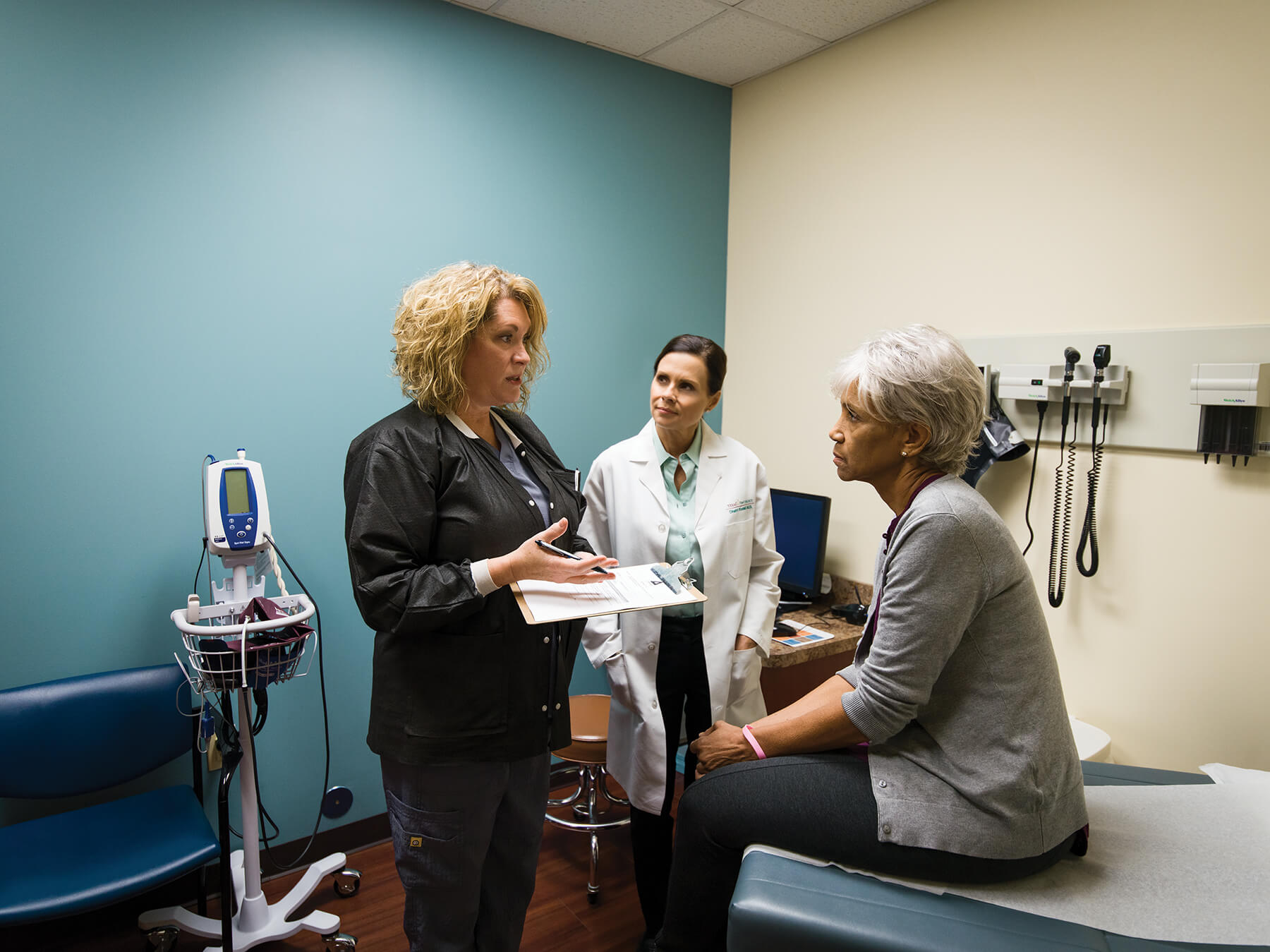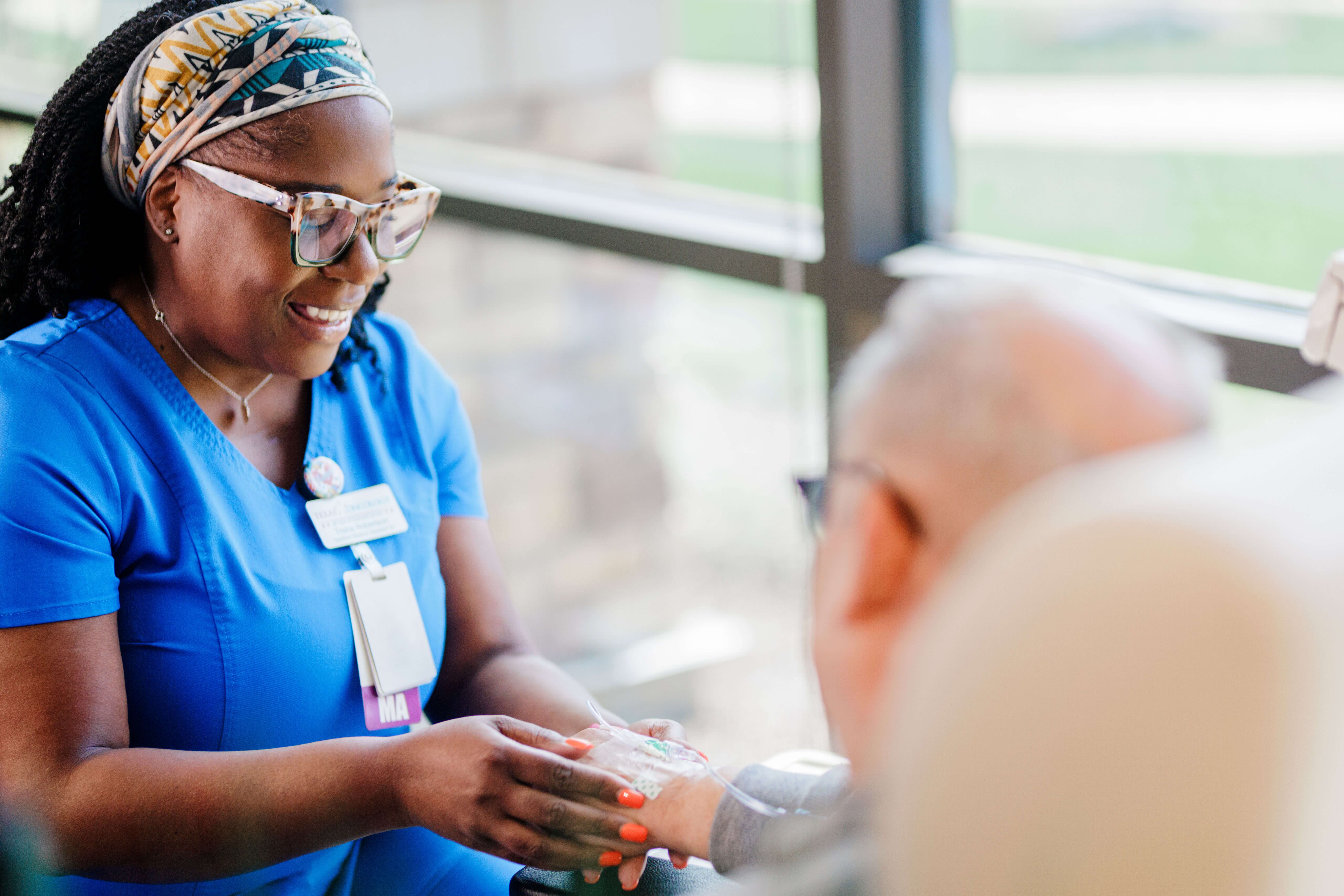« Back to Blog
The US Oncology Network Demonstrates Leadership in Cancer Research with over 40 Presentations at ASCO
Many physicians and clinicians across The US Oncology Network (“The Network”) have just returned from the American Society of Clinical Oncology’s (ASCO) Annual Meeting. As one of the largest cancer meetings in the world, this event brings together more than 35,000 oncology professionals from around the globe. This year’s conference was very energizing, highlighting many promising new therapies and care strategies, while enabling networking opportunities with some of the brightest minds in oncology research and cancer care.
The conference also enables us to meet with our pharma partners. We had several meetings with manufacturers about drugs in their development pipeline, with discussions focusing on how we might accelerate the completion of their trials to speed FDA approval or approval for new indications. Additionally, we identified about 40 new clinical trials we might participate in with our pharma partners in the upcoming year.
The actual meeting itself also helps us provide better care, as attendees have access to thousands of presentations about the most important developments occurring in oncology worldwide.
The Network had a strong presence
The Network made a very strong showing at ASCO through our research organization, US Oncology Research. We had several key presentations involving novel drugs or novel drug combinations in various hematologic malignancies, including non-Hodgkin’s lymphoma and chronic lymphocytic leukemia. We were also part of a team studying a promising new PDL-1 inhibitor, pembrolizumab, for triple negative breast cancer, an aggressive subtype of the disease. Our Phase I program had a large number of posters looking at novel agents in a variety of different malignancies. All in all, we had about 40 presentations including oral, poster and published abstracts at the meeting, demonstrating that The Network is at the forefront of clinical research.
Key takeaways from the conference
One of the most promising advances revealed at ASCO was CAR-T cell therapy, which involves engineering a patient’s own immune cells to treat their cancers. It will likely receive FDA approval for certain types of acute leukemia and recurrent non-Hodgkin’s lymphoma, and studies are now being launched in myeloma, chronic leukemias and solid tumors. The Network has one site participating in those trials, and we have created a task force to evaluate the opportunities and barriers to bringing CAR-T cells to a broader swath of The Network in 2018.
Immuno-oncology trials also generated a huge amount of interest, as they have at past conferences. These studies examine drugs called checkpoint inhibitors that target and amplify the body’s immune system to help fight cancer. The growing list of trials involving checkpoint inhibitors, either by themselves or combined with chemotherapy or other molecularly targeted drugs, was a very prevalent theme at the meeting. The Network has conducted over 60 trials looking at PD-1 or PDL-1 binding antibodies either alone or in combination with other therapies just in the last 3 years.
There was also considerable discussion around the challenges of providing expensive, leading-edge therapies to patients while attempting to control costs in an era of value-based care. Several presentations were given where the addition of a new drug provided somewhat modest benefit to some patients, but with an additional price tag of $100,000 a year. How to advocate for our individual patients while being stewards of our countries limited resources is becoming a more central issue in the evolving landscape of value-based care.
One final takeaway from the conference is that the pipeline of new cancer drugs has never been richer. An enormous number of trials are currently underway. In fact, over the last few years, the discussion has shifted from physicians wanting more good trials to concerns that there are not enough patients participating in trials to complete all the promising studies available. Recruiting patients for clinical trials remains difficult, as less than 5 percent of cancer patients join a trial. An interesting presentation at ASCO focused on the barriers to trial participation. Foremost among them was the misconception that cancer trials include placebos. Other factors were patient concerns about additional costs if they participated in a trial, as well as a perception that trials were not available close to home. US Oncology Research provides a solution to the later issue and the presentations at ASCO, the rich drug pipeline, and our robust participation in clinical research reminds me that we have much to contribute as a network as we look to prevail over cancer.
The future looks very bright
The progress in cancer care over the past several decades is breathtaking, and the future looks even more promising. The advances in targeted therapy and immuno-oncology, as well as the new approach to treating patients more holistically, hold vast potential to help cancer patients live longer and better. Cancer mortality is dropping, and just in the past few years, the period of time people are living with advanced cancers has increased for many of the most challenging malignancies. I am very optimistic that the outlook for cancer patients will continue to improve, with great strides being made in the not too distant future.
Michael V. Seiden, M.D., Ph.D.
Senior Vice President and Chief Medical Officer
McKesson Specialty Health and The US Oncology Network

